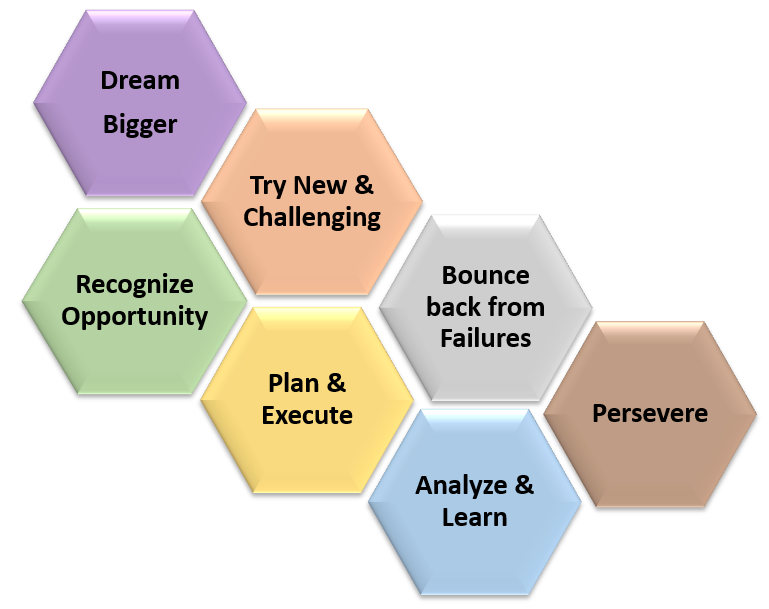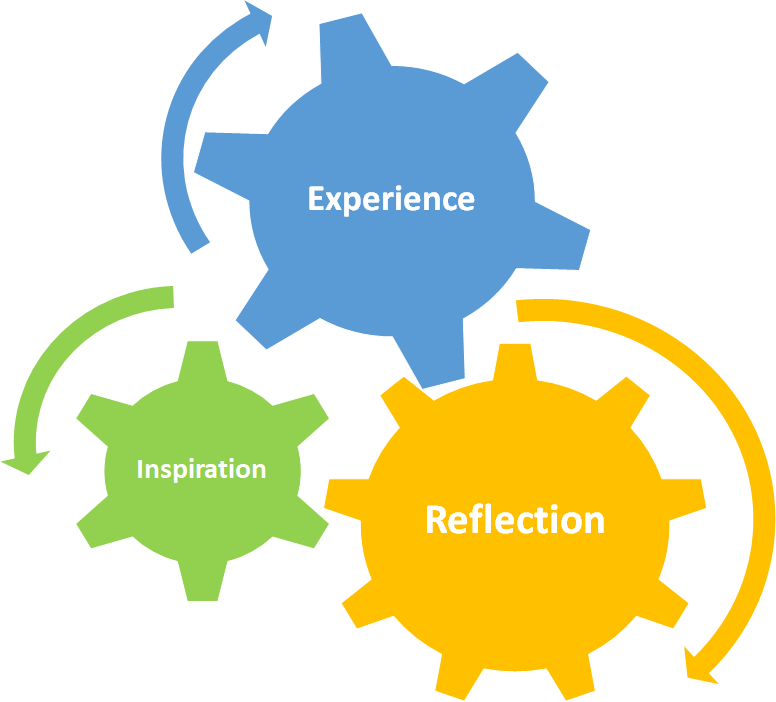
What is the Entrepreneurship Mindset?
Irrespective of what they pursue, we want our students to think like an entrepreneur -- willing to dream big, try new and challenging goals, be able to recognize opportunities around, and then plan and execute to bring them to fruition. Failures are a part of life, but our students should be able to bounce back from them, analyze and learn from both successes and failures, and relentlessly persevere to achieve their goals.
